Cloud storage is a remote storage service which allows you to store your data and have it readily accessible over the Internet. The cloud storage platform securely hosts and manages the data, so you won’t have to do anything besides store your files.
The biggest benefit of cloud storage is that it is a scalable and cost-effective alternative to traditional storage devices. Many providers I have listed below offer pay-as-you-go, which means you pay for the storage you use. And, the best part is you can get up to 25 GB storage for free, which should be sufficient for storing photos, videos and business documents.
Scalable, cost-effective, and secure, cloud storage is the modern way to manage your personal and business data, whether you need a few gigabytes or terabytes of space, the following options will help you.
- 1. Google Drive – Best Overall
- 2. Zoho WorkDrive – Best for Small to Medium Businesses
- 3. Sync.com – Best for Sharing Files
- 4. Internxt – Best for Decentralized Storage Focus
- 5. Box – Best for e-Signature Features
- 6. OneDrive – Best for Microsoft 365 Integration
- 7. Koofr – Best for Keeping Data in Europe
- 8. Dropbox – Best for Document Collaboration
- 9. iCloud Drive – Best for Apple Devices
- 10. MediaFire – Best for Quick File Sharing
- 11. Degoo – Best for Massive Free Storage Tier
- 12. pCloud – Best for Small Businesses
- 13. Icedrive – Best for Twofish Encryption
- 14. MEGA – Best for Large Free Storage Allowance
- 15. NordLocker – Best for Advanced Encryption Features
- 16. iDrive – Best for Computer and Server Backup
- Show less
You can trust Geekflare
At Geekflare, trust and transparency are paramount. Our team of experts, with over 185 years of combined experience in business and technology, tests and reviews software, ensuring our ratings and awards are unbiased and reliable. Learn how we test.
Free Cloud Storage Platforms Comparison Table
Below is a comparison of the online free cloud storage platforms based on storage offered, encryption, and key features offered. Each platform will be explored in detail later in this article.
 |  | 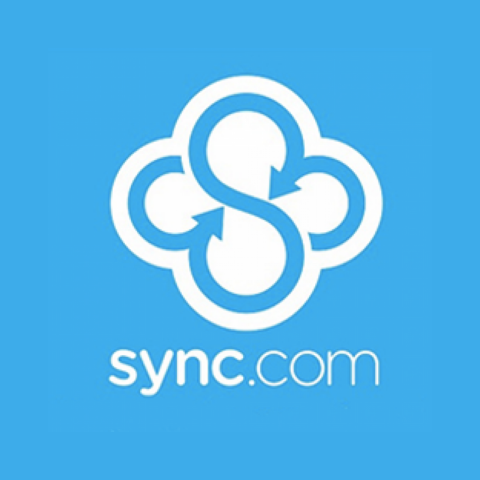 |  | 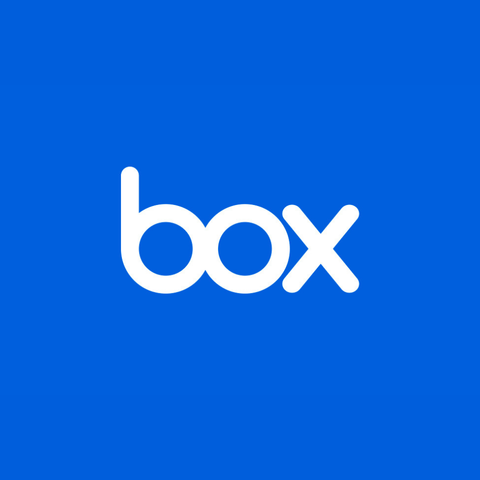 |  |  |  |  |  |  |  |  |  | 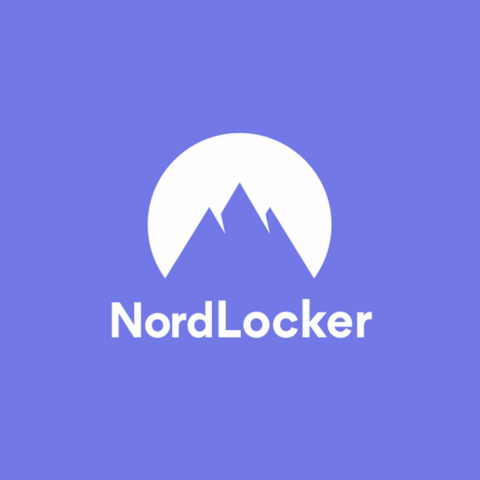 | 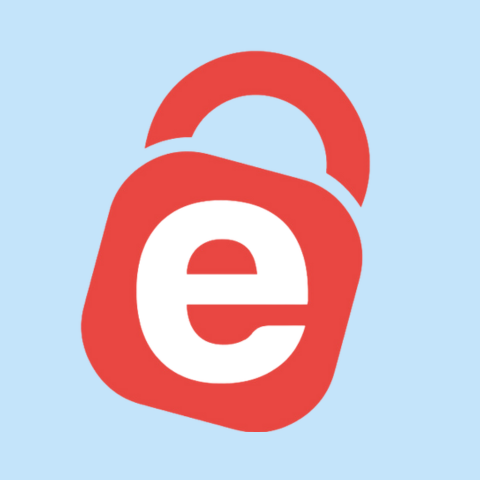 | |
15 GB | 5 GB | 5 GB | 1 GB | 10 GB | 5 GB | 10 GB | 2 GB | 5 GB | 10 GB | 25 GB | 10 GB | 10 GB | 20 GB | 3 GB | 10 GB | |
AES256 | 256-bit AES | AES 256-bit with TLS | Zero-knowledge encryption | 256-bit AES | AES256 key | SSL, TLS | 256-bit (AES) | End-to-end | Not specified | Zero knowledge encryption | 4096-bit RSA, 256-bit AES | 256-bit key | Zero-knowledge encryption | AES-256, xChaCha20-Poly1305, Ed25519 | 256-bit AES | |
In-built security, cloud-native collaboration tools, integration capabilities | Collaboration tools, thousands of integrations | Real-time backups, custom file portal for branded file sharing | Available on all platforms, military-grade encryption | Powerful e-signatures, AI-powered content management | Integration with Microsoft Office, personal vault | Security without tracking, easy access across devices | Smart sync, various collaboration tools | Integration with Apple ecosystem, easy access via web and app | Download with no wait times, file organization | Auto upload of photos, supports up to 3 devices | Full-featured GUI, advanced browser upload, document conversion | Full-featured GUI, advanced browser upload, document conversion | Secure video calls, private messaging, meetings | Quick syncing across devices, drag and drop file encryption | Secure backups, hybrid cloud storage, and real-time file syncing. | |
Geekflare’s editorial team determines ratings based on factors such as key features, ease of use, pricing, and customer support to help you choose the right business software. | ||||||||||||||||
Review of Free Cloud Storage Platforms
Below, I have reviewed the free cloud services in detail with features, pros and cons, and customer service offered.

1. Google Drive
Best Overall
- EncryptionAES256
- Available OfflineYes
- Customer SupportChat, Forum
About Google Drive
Google Drive is one of the most widely used cloud storage platforms. It offers a free version for its users. It has a simple UI with incredible features, and it’s backed by the collaborative Google ecosystem that has access to all productivity tools.
Google Drive is a great cloud storage platform for individuals and businesses that love high scalability. It supports various integration options with third-party apps like Zoom, YouTube, and Webhooks.
Google Drive’s file management and organization are also top-notch. All the files are arranged systematically, and you can search them by date, people added, or last activity. The ease of accessibility across all devices also contributes to its insane popularity. It is accessible from your smartphone, tablet, computer, or smartwatch.
Google Drive Features
Integrates with Docs, Sheets, Slides, and Forms.
Offers easy and quick file sharing with people.
Provides real-time collaboration on documents, spreadsheets, and presentations.
Is accessible from multiple devices.
Has file encryption, two-step verification, and expiration dates for shared files.
Google Drive Pros/Cons
Good cross-platform functionality, integrating with Adobe, DocuSign, Atlassian, etc.
Meet video and voice conferencing with up to 100 participants.
It offers free storage of up to 15 GB, which is sufficient for most individual users.
Does not provide online support with the free version.
The free plan does not provide a custom business email.

2. Zoho WorkDrive
Best for Small to Medium Businesses
- Encryption256-bit AES
- Available OfflineYes
- Customer SupportPhone, Live Chat
About Zoho WorkDrive
Zoho WorkDrive offers a free cloud storage solution with incredible security features and industry-standard encryption protocols. Their cloud storage platform is business-centric, making it ideal for professionals.
Zoho WorkDrive has features like real-time synchronization and global access through any device with sanctioned credentials, providing a central place to securely store data and assign responsibility for each project or team.
Zoho WorkDrive allows delegating admin responsibilities to team leaders to manage their respective team folders and other members as organizers, editors, or viewers for better control. The main window has a drop-down menu with Zoho’s native workplace apps, and you can switch to any app with a click.
Zoho WorkDrive Features
Offers universal content search to find your files quickly.
Provides mobile and desktop access for flexibility.
Has sub-folder level sharing to organize and share specific content.
Offers granular access controls to manage permissions precisely.
Provides password-protected links for secure sharing.
Zoho WorkDrive Pros/Cons
Allows integration with Zoho Suite and other apps.
Allows delegating admin control at various levels to eliminate confusion.
Allows team members to work together in real-time.
The free storage space offered isn’t much, as it is considered to be an individual plan.
There is a 1GB upload limit.

3. Sync.com
Best for Sharing Files
- EncryptionAES 256-bit with TLS
- Available OfflineOnly on Mobile
- Customer SupportEmail
About Sync.com
Sync.com is a great cloud storage platform if your main concerns are file sharing and team collaboration. Its seamless workflow can ease your day-to-day file-sharing vows while securing all data transfers via its end-to-end encryption and HIPAA-compliant security protocols.
Your files are stored on Sync’s servers and accessible only to you. Plus, there is no limit to file sizes. One of Sync’s best collaborative features is that shared files take up the original user’s storage space, so subscribed employees can share large files with free account holders without taking up their quota.
Sync’s free plan comes with 5 GB storage capacity, but if you want to expand it, there’s a referral program. For each new account you refer using your unique code, you get 1 GB of extra space. Even though the rewards cap off at 20 GB, it’s still a great program.
Sync.com Features
Provides sharing and collaboration tools to work efficiently with your team.
Offers real-time backup and sync to keep your data current and safe.
Is accessible from multiple devices for your convenience.
Has unlimited data transfer to support your extensive data needs.
Sync.com Pros/Cons
Users can upload files to a vault for undistributed backup
The advanced security features are significantly better than those of other cloud storage platforms.
File versioning is available as far back as 30 days.
The free plan does not include integration with Office 365.
There’s no preview mode in the free plan.
The storage limit is 5 GB and 3 links per month only.

4. Internxt
Best for Decentralized Storage Focus
- EncryptionZero-knowledge encryption
- Available OfflineNot specified
- Customer SupportLive chat
About Internxt
Internxt offers a secure and private cloud platform for individuals and businesses that allows for uploads of up to 40GB for all file types that you can store, share, backup and sync on Windows, Mac, Linux, with WebDAV and Rclone support also available.
Internxt offers the best features when it comes to protecting your privacy online. All files are encrypted on your device. Plus, only you hold the encryption keys to your data, giving you complete control and privacy as nobody else can access your files. Additional security features include Two-Factor authentication (2FA), password protection for shared files, and backups across multiple servers for increased redundancy and protection against data loss.
Internxt also offers other privacy-focused products, such as a VPN, and it will soon offer Internxt Mail and meet to its ecosystem. All of Internxt’s products are open-source and audited to verify its security and offer complete transparency to users.
If you need more than the free storage available, you can go for a paid plan. Use promo code GEEK82 to get 82% OFF on lifetime plans.
Internxt Features
Provides encrypted file and folder sharing for secure data transmission.
Offers a password-protect option to enhance the security of shared files.
Allows access from multiple devices for greater flexibility.
Supports uploading files up to 40 GB to accommodate large data transfers.
Has two-factor authentication (2FA) for additional account security.
Internxt Pros/Cons
It is open-source and regularly audited.
It puts an incredible amount of emphasis on security.
It syncs data across devices quickly.
Offers S3-compatible object storage
The storage space offered to free users is limited.
No backup for photos on the mobile app
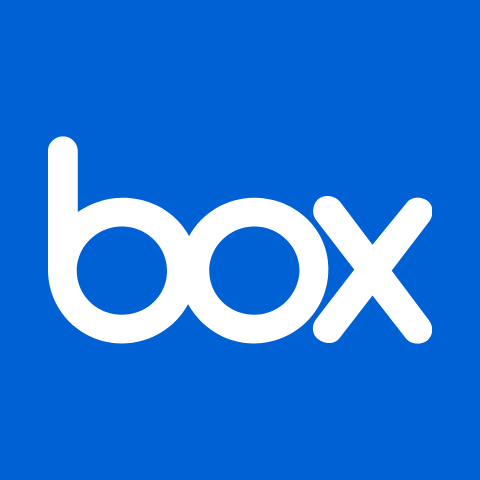
5. Box
Best for e-Signature Features
- Encryption256-bit AES
- Available OfflinePer Machine Basis
- Customer SupportPhone
About Box
Box is a business-forward cloud storage platform that supports powerful integrations and software package add-ons. It has an extensive admin console from which you can quickly switch to any app, such as Microsoft 365, Adobe Creative Cloud, and Google Workspace.
Box makes admin work extremely simple. It saves every user action, such as logging in, opening a file, sharing data, or installing or updating the app. This way, employers can ensure transparency and accountability within the organization. Freelancers and individuals also benefit from this feature, as they can keep track of all their actions.
Box provides 10 GB as part of their free plan. It’s quite generous when it comes to free space, and there is no limit to the number of devices you can use it from, so your work is accessible from anywhere.
Box Features
Provides secure file sharing to ensure your data is protected.
Offers 2-factor authentication for enhanced security.
Has built-in integrations with Microsoft 365 and Google Workspace.
Offers an integrated desktop experience for seamless workflow.
Box Pros/Cons
It provides a full version history of files and actions.
The free versions have many integrations, such as Microsoft Office and Slack.
Allows real-time editing and commenting on documents.
Being a personal plan, it does not provide custom branding or document watermarking.
The free version does not come with data loss protection.

6. OneDrive
Best for Microsoft 365 Integration
- EncryptionAES256 key
- Available OfflineYes
- Customer SupportChat (only for paid users)
About OneDrive
OneDrive by Microsoft provides a centralized space for all your files while providing integration options with the Microsoft ecosystem, including Windows. It’s the default app for computers using Windows 10 or above, so Windows users should have plenty of familiarity.
OneDrive’s feature-rich cloud storage platform makes it ideal for business and personal use. You get cross-platform functionality, picture management, folder organization, GDPR and ISO standards compliance, and data password protection via a PIN, biometric, or OTP. Plus, if a file is corrupted, you can easily restore its previous version if it was on the server as far back as 30 days.
OneDrive allows you to back up your data so you don’t lose important files. Even if you don’t remember, scheduled backups ensure your data is secure in case of any human or technical issue.
OneDrive Features
Provides ransomware protection for files and photos.
Offers online photo presentation and management tools.
Has file sharing and collaborative editing capabilities.
OneDrive Pros/Cons
It performs automatic backups.
The free plan comes with Microsoft Word, Excel, and PowerPoint.
Allows accessing files from anywhere.
Microsoft Defender is not provided.
For an Ad-free Outlook experience, users need to subscribe to a paid version.

7. Koofr
Best for Keeping Data in Europe
- EncryptionSSL, TLS
- Available OnlineOnly on Android
- Customer SupportForm, Community
About Koofr
Koofr is a European cloud storage platform that respects your privacy by not adding trackers to your data. If you are a European or a company based in the continent or wish to store data ‘in’ Europe, you should opt for their reliable service. It is a secure platform that works well across all linked devices through browsers, desktop apps (Windows, Mac, Linux), and mobile apps (Android or iOS).
Koofr securely stores your files in one place. It provides seamless integration with many third-party apps but works best with Microsoft 365, OneDrive, Google Drive, and Dropbox. Through Koofr’s unified access, you can view and edit all your files on these linked cloud services. However, it does not support file sync or transfer among the different platforms.
Since you can access OneDrive, DropBox, and Google Drive through a single Koofr account, you get 32 GB of space on the same app. However, barring that, Koofr provides 10 GB for free.
Koofr Features
Provides automatic mobile media backup to keep your photos and videos safe.
Offers two-way synchronization for seamless file updates across devices.
Has file versioning to track and restore previous versions of your documents.
Offers private sharing with up to 10 users for secure collaboration.
Provides a 50 GB daily public sharing transfer limit to meet your sharing needs.
Has a ‘Save to Koofr’ browser extension/add-on for easy file saving.
Koofr Pros/Cons
Does not track or scan your files, making it the EU’s safest cloud storage.
Gives you access from every device and location.
Gives you the option to share expiring or protected files.
The free forever version comes with only 1 Koofr Vault Safe Box.
Limited to only 2 external cloud connections.

8. Dropbox
Best for Document Collaboration
- Encryption256-bit (AES)
- Available OfflineYes
- Customer SupportChat, Email, Phone
About Dropbox
Dropbox is a well-known cloud storage app that supports third-party integrations, automated backup, and cross-platform functionality. It is also an excellent file-syncing app that allows you to move your data to digital storage in the easiest manner, making it one of the best free cloud storage for personal use.
While many other cloud storage platforms offer these features, Dropbox stands out with its unparalleled collaboration possibilities. You can share files conveniently with people using a simple link, which also works for audio and video files. This simplified approach to file sharing is what makes it a great collaborative cloud storage platform.
Dropbox integrates with cloud computing systems without compromising speed or accuracy. Once synchronization is established with your current system, the workflow is seamless. You can keep track of your files, including each modified version, without hassle. You can also arrange files in numerous folders and sub-folders and utilize the search feature to find data you forgot existed.
Dropbox Features
Provides access to files from multiple devices for convenience and flexibility.
Offers file sync and automatic backups to keep your data secure and up-to-date.
Has file version history to track changes and revert to previous versions.
Provides file recovery from the past 30 days to restore lost or deleted files.
Offers sharing and collaboration tools to work effectively with others.
Dropbox Pros/Cons
Every file is backed up once it is uploaded.
Connects with up to 3 devices.
Backed by strong security protocols.
The free storage space is limited to 2 GB.
Does not provide PDF editing.

9. iCloud Drive
Best for Apple Devices
- EncryptionEnd-to-end
- Available OfflineYes
- Customer SupportPhone, Chat
About iCloud Drive
iCloud Drive is Apple’s official cloud storage app, and it follows the footsteps of its company by taking the security of users very seriously. It only syncs within the iOS ecosystem to tackle security breaches through connectivity with foreign devices.
iCloud is deeply integrated with macOS and iOS, like OneDrive with Windows. The interface is clean and sophisticated, true to its brand. Apple users will find the dashboard easy and familiar to navigate.
iCloud Drive lacks advanced management features, but it works exceptionally well when backing up files. If you are looking for a simple cloud storage platform for iOS and macOS, this will fulfill your requirements.
iCloud Drive Features
Provides automatic file sync and backup to keep your data safe and current.
Connects with the entire Apple ecosystem for seamless integration.
Ensures files are encrypted both in transit and at rest for maximum security.
Maintains a file version history to track and restore previous versions of your files.
iCloud Drive Pros/Cons
Incredibly secure and hard to break into
It offers simple features that eliminate overwhelm
File sharing between Apple users is fast and smooth
Only paid users get access to the privacy features.
It does not support Android or Linux and offers limited support for Windows.

10. MediaFire
Best for Quick File Sharing
- EncryptionNot specified
- Available OfflineOnly on Mobile app
- Customer SupportEmail
About MediaFire
MediaFire is a cloud storage platform with several advantages. You can upload files up to 20 GB, filter your data, generate shareable links to send via email or social media, and even upload directly from your smartphone.
With a simple interface, MediaFire allows users to upload, store, and access their files from anywhere at any time. The free version gives 10 GB of storage space, making it perfect for photos, documents, and smaller media files. Its integration with popular apps can also improve workflow and enable quick file transfers between different platforms.
While the free version of MediaFire doesn’t include features like priority support or ad-free experience, it remains an excellent choice for basic cloud storage needs.
MediaFire Features
Provides unlimited bandwidth and download for unrestricted access.
Offers one-time links for sensitive files to enhance security.
Allows multiple uploads at once to save time and increase efficiency.
Gives control over access to all files for improved security management.
Ensures seamless file organization for easy navigation and management.
MediaFire Pros/Cons
It offers 10 GB of free storage, which should be enough for basic uses.
It provides simple and effective file-sharing options.
It supports integration with popular apps.
Bulk downloads are possible with the pro version only.
The free version is not ad-free.

11. Degoo
Best for Massive Free Storage Tier
- EncryptionZero knowledge encryption
- Available OfflineNot specified
- Customer SupportSupport Tickets
About Degoo
Degoo is a consumer-oriented cloud storage platform with 25 million global users. The features are simple, making it ideal for personal use, primarily to backup photos. If you have a huge camera roll, you will benefit greatly from its generous free plan, as it clears up space on your device for essentials like contacts, apps, and documents.
Degoo lets you arrange your pictures in folders and subfolders for easy access. It’s like a private locker that can be opened solely with a password allotted to the owner. The code is not saved by Degoo but rather ciphered into smaller bits to be sent to various data centers globally, guaranteeing 100% NSA compliance.
One of the only downsides to Degoo is that it displays ads even if you’re a premium member.
Degoo Features
Provides automatic backups to safeguard your data continuously.
Offers cross-device sync to access files from anywhere for ultimate convenience.
Enables sharing of files and folders with others via links for easy collaboration.
Uses AES-256 encryption both during transfer and while stored on their servers for robust security.
Implements unique passphrase encryption for an added layer of protection.
Degoo Pros/Cons
It provides 20 GB free storage + 5 GB bonus for signing up.
Backs up and restores your data swiftly.
Collect only small and limited amounts of data.
Does not provide access to the web app.
Users need to upgrade to the paid version to go ad-free.

12. pCloud
Best for Small Businesses
- Encryption4096-bit RSA, 256-bit AES
- Available OfflineYes
- Customer SupportEmail, Form
About pCloud
pCloud has a bunch of capabilities that’ll elevate your cloud storage experience. It has zero restrictions in terms of upload and download limits for files. You can upload any file type regardless of size without worrying about speed. It uses block-level sync to upload large files in seconds.
pCloud provides two levels of security: AES 256-bit encryption and zero-knowledge proof. The latter requires an additional fee, but the security is pretty solid even without that. Its compact and formidable capabilities make it a great cloud storage platform. It’s secure, fast, and supports all types of files.
pCloud Features
Facilitates collaboration using shared links, file requests, invitations, and more for efficient teamwork.
Utilizes 256-bit AES encryption for all files to ensure top-notch security.
Offers backups from other cloud storage platforms for consolidated data management.
Includes a built-in video player for video streaming to enhance media accessibility.
Has file versioning to keep track of document changes and revisions.
pCloud Pros/Cons
pCloud’s ‘save’ extension can be added to your browser to save pictures to your cloud account directly.
Provides up to 10 GB of free storage.
Allows access across all devices.
Users who want an extra layer of encryption must purchase it as an additional paid service.
The free account provides storage space for an individual user.

13. Icedrive
Best for Twofish Encryption
- Encryption256-bit key, Two-fish
- Available OfflineOnly on Mobile App
- Customer SupportSupport Tickets
About Icedrive
Icedrive’s cloud storage platform was launched fairly recently but is already making waves with strict security measures and a 10 GB free plan. It’s constantly rolling out new updates for improved performance.
This cloud storage platform has a straightforward dashboard with all the productivity tools at the forefront. Most clouds allow you to restore a 30-day-old version of your file, but Icedrive takes it up a notch to include versions as far back as 180 days. You can also let it upload media from your mobile automatically.
Icedrive follows Twofish protocol for security, making it one of the most secure cloud storage systems. It’s available via browser, phone, and desktop, syncing all your devices to access your uploaded files anytime, anywhere.
Icedrive Features
Facilitates collaboration using file sharing, public links, and file requests for seamless teamwork.
Allows control over access to shared files via password protection for enhanced security.
Supports multiple devices to ensure accessibility from anywhere.
Offers a timeout option for sensitive files to protect your data with automatic expiration.
Icedrive Pros/Cons
It has an excellent upload speed.
You can restore old file versions up to 10 times.
It’s compliant with GDPR and UK laws.
The free version does not have client-side encryption.
The monthly bandwidth is capped at 50GB.

14. MEGA
Best for Large Free Storage Allowance
- EncryptionZero-knowledge encryption
- Available OfflineYes
- Customer SupportEmail
About MEGA
MEGA’s cloud storage app is loaded with features. You can upload files without a hitch, share encrypted folders, links, or media, and set expiration dates for complete control over access. You can also preview documents, listen to audio files, and chat through an integrated secure chat platform – MegaChat.
MEGA emphasizes its security protocol, which is evident through its end-to-end encryption and cybersecurity law compliance. It extends zero-knowledge encryption to both paid and free users. If you ever forget your password, the account can be unlocked only by a recovery key, extending its security protocols.
Since MEGA is spread out in European Union countries, it complies with GDPR laws. If you need security, storage capacity, and easy navigation, look no further than this.
MEGA Features
Provides various browser extensions to enhance your browsing experience.
Offers accessibility from multiple devices for convenience and flexibility.
Ensures end-to-end data encryption with AES-128 and TLS for robust security.
Syncs across all your devices and browsers to keep your data up-to-date everywhere.
Includes administrative reports and analysis for better management and insights.
Has file versioning to track and restore previous versions of your files.
MEGA Pros/Cons
A generous 20 GB free storage option.
It has a sleek interface with easy navigation.
It has an elite security protocol that encrypts every activity.
The free plan has limits on transfers.
MEGA VPN does not come with the free plan.

15. NordLocker
Best for Advanced Encryption Features
- EncryptionAES-256, xChaCha20-Poly1305, Ed25519
- Available OfflineYes
- Customer SupportEmail
About NordLocker
NordLocker is known for its secure encryption features, and is one of the safest cloud storage options available. It has a clean interface with tools to edit your files without glitches. Especially with the latest updates, the interface has improved considerably.
NordLocker supports easy file sharing, allowing you to send encrypted files securely to others. This feature is particularly useful for sharing sensitive information while maintaining privacy. The link-sharing capabilities are also commendable. When you share a link, a code is generated for the guest user to access the file, preventing unauthorized access.
Additionally, NordLocker’s integration with both Windows and macOS enhances its usability, providing a smooth experience across different devices.
NordLocker Features
Provides unlimited end-to-end encryption for maximum security.
Syncs files across devices to keep your data consistent everywhere.
Ensures neat organization of files for easy management and access.
Offers a file drag and drop option for convenient uploading.
Has secure backups to protect your data from loss.
NordLocker Pros/Cons
It provides unlimited encryption for files.
It supports all file sizes and types with no lag in synchronization speed.
It levels up your security with the option of multi-factor authentication (MFA).
The free version does not come with secure file sharing.
The free storage amount is limited to 3GB, which is quite low.

16. iDrive
Best for Computer and Server Backup
- Encryption256-bit AES
- Available OfflineYes
- Customer SupportEmail
About iDrive
iDrive is a pioneer in cloud backup and storage with over 2 million users worldwide. Headquartered in the United States, iDrive has focused on comprehensive protection of computers, servers, mobile devices, and other critical systems since 1996.
iDrive’s automated backup and syncing functionality works continuously in the background to safeguard users’ latest files and data. Options for both block-level and real-time backup suit varying protection needs. Disaster recovery capabilities further ensure continuity amid hardware failures or unforeseen events.
Why we chose iDrive as Best for Computer and Server Backup
iDrive truly excels for users seeking complete, hands-off protection of entire systems, applications, and data. Features like server backup, disk image support, and certified compliance accommodate extensive business environments.
Mobile device coverage broadens data security across important endpoints. Comprehensive feature sets and scalable plans outshine limited free tiers and interface complexity for these users.
iDrive Features
Security and Compliance: Military-grade AES 256-bit encryption protects backups with certified options like HIPAA.
Integration Options: Focused on core backup functionality over external integration breadth.
International Support: Available globally with multi-language assistance.
Customer Support: Online and email help, supplemented by phone support for upgraded plans.
Reviews and Reputation: Feedback notes the feature-rich functionality but also a steeper learning curve.
iDrive Pros/Cons
Disk and system imaging for complete restoration and disaster recovery
Comprehensive backup coverage across diverse system environments, including servers and mobile devices
Continuous data protection through hands off versioned, scalable storage
Steeper learning curve interface may frustrate less technical users
Integrations with other apps relatively limited
File upload size caps of 2 GB via the web interface and 10 GB via desktop application could hinder some backups
What is a Cloud Storage?
A cloud storage is a secure server where users can store, share, and manage their data digitally. The data is accessible as long as there’s an active internet connection. As long as you choose one of the top cloud storage software, you’ll get a scalable and cost-effective solution compared to traditional devices like hard disks that store data locally.
Why Use Free Cloud Storage?
Free cloud storage enables users to store their data without spending any money. It’s ideal for people who want to store small files and access them from anywhere while reducing the need for physical storage devices. A free plan also helps you decide whether to invest in a paid subscription.
Can Free Cloud Storage be Used as a Backup?
Yes, storing data digitally helps create a backup for sensitive information. If a local storage device fails, the information it contains is lost forever, but the data is saved in more than one location on cloud storage. A copy is stored offsite beside the main server and can be easily retrieved in case of system failure or human error.
Who Uses Free Cloud Storage?
Most cloud storage providers offer a free plan with limited storage space that people with small needs can benefit from. Ideally, everyone can use free cloud storage, but it is best suited for individuals or teams that need to save, manage, and share files and a limited amount of data securely without investment.
Also, if you already have a paid cloud storage platform subscription, you can use a free one to supplement it. This is exactly what many people do, according to a survey by Goodfirms[1].
What are the Disadvantages of Free Cloud Storage?
There are 4 disadvantages of a free cloud storage subscription, as listed below.
- Limited amount of space, ranging between 1-20 GB, which is not enough to store all your data
- It lacks advanced management features
- Free plans without strong security are at a risk of losing data
- It lacks priority support, which can be crucial for when you’ve encountered a problem
What can you do with the Free Cloud Storage?
Free cloud storage is ideal for storing and backing up data like pictures, audio files, videos, documents, and, more importantly, critical information that needs privacy protection. While it’s not suitable for large amounts of data, it does the job pretty well if you just want a minimal storage capacity.
What is the Average Capacity of Free Cloud Storage?
The average free cloud storage capacity is about 10 GB, but the plans vary. For example, Box and Koofr provide 10 GB of free space, iCloud and OneDrive offer only 5 GB, and Google Drive offers a generous 15 GB of space. MEGA and Degoo offer the maximum free account storage space of 20 GB.
Is there a Free Unlimited Cloud Storage?
Sadly, all platforms charge a fee for more storage capacity. However, some platforms offer a generous free plan, and many others offer affordable prices.
What is the Difference Between Cloud Storage and Object Storage?
Cloud storage refers to storing data in a remote location, while object storage is a way of storing unstructured data by sectioning it into sections called ‘objects’. This approach is best for large volumes of data, including web pages, audio files, documents, and pictures. As a matter of fact, object storage is a type of cloud storage.
When dealing with large volumes of data, it is better to use the top object storage for your applications and data as when it comes to free versions, there are always limitations as is the case for the free plans of these cloud storage platforms too.

